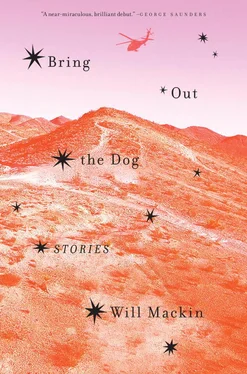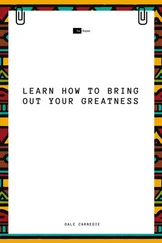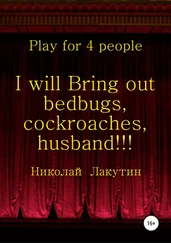Will Mackin - Bring Out the Dog
Здесь есть возможность читать онлайн «Will Mackin - Bring Out the Dog» весь текст электронной книги совершенно бесплатно (целиком полную версию без сокращений). В некоторых случаях можно слушать аудио, скачать через торрент в формате fb2 и присутствует краткое содержание. Город: New York, Год выпуска: 2018, ISBN: 2018, Издательство: Random House Publishing Group, Жанр: prose_military, на английском языке. Описание произведения, (предисловие) а так же отзывы посетителей доступны на портале библиотеки ЛибКат.
- Название:Bring Out the Dog
- Автор:
- Издательство:Random House Publishing Group
- Жанр:
- Год:2018
- Город:New York
- ISBN:978-0-812-99564-0
- Рейтинг книги:5 / 5. Голосов: 1
-
Избранное:Добавить в избранное
- Отзывы:
-
Ваша оценка:
- 100
- 1
- 2
- 3
- 4
- 5
Bring Out the Dog: краткое содержание, описание и аннотация
Предлагаем к чтению аннотацию, описание, краткое содержание или предисловие (зависит от того, что написал сам автор книги «Bring Out the Dog»). Если вы не нашли необходимую информацию о книге — напишите в комментариях, мы постараемся отыскать её.
Bring Out the Dog — читать онлайн бесплатно полную книгу (весь текст) целиком
Ниже представлен текст книги, разбитый по страницам. Система сохранения места последней прочитанной страницы, позволяет с удобством читать онлайн бесплатно книгу «Bring Out the Dog», без необходимости каждый раз заново искать на чём Вы остановились. Поставьте закладку, и сможете в любой момент перейти на страницу, на которой закончили чтение.
Интервал:
Закладка:
So I jumped into the crater after the stone. I found it at the end of a long, concave groove in the dust. Turning back toward the crater’s rim, I saw my bootprints descending the slope, each as perfect as Neil Armstrong’s first step on the moon. On my way back up to the graveyard, I was careful not to disturb those tracks, or the flawless groove that had been carved by the stone. I wanted these things preserved, I supposed, in the event that an asteroid should slam into the planet, sloughing away the atmosphere, boiling the seas, and ending life on earth in a matter of seconds.
Our troop—asphyxiated, desiccated, frozen—would lie scattered about the graveyard, perfectly preserved in the seamless void of space forever, or at least until other intelligent beings came along and discovered us. Perhaps because these beings existed as thin bars of blue light, incapable of offensive or defensive action, they’d puzzle over our armor, rifles, night-vision devices, and grenades. They’d wonder, especially, why we’d worn such things to a graveyard. There’d be no mystery, however, regarding the bootprints in the crater, since they’d know, by the boots still on my feet, that I’d been the one who’d left them. Furthermore, they’d deduce, by the groove, that I’d descended into the crater after a stone. Only one stone could’ve cut that groove. Thus, they’d find it among a thousand others, right where I’d returned it, atop the grave, just moments before the asteroid had struck the earth. But none of that would explain how the stone had wound up in the crater in the first place.
Had one of them thrown it? the curious bars of blue light might ask themselves.
THE NEXT NIGHT, in the OPS hut, we still had nothing, intelligence-wise. Hal asked for suggestions again. Another hush fell on the troop as we sat thinking. Hal stood in the middle of the plywood room. On the one hand, he loved the war. On the other, he loved us. Green clouds floated by on the flatscreens. Fuzzy static emanated from the UHF. Archie, who, a month prior, had replaced Yaz, who we’d lost in a soybean field in Konduz, stood up from the floor. He pulled a tin of breath mints from his shirt pocket.
“I probably should’ve told you guys about this sooner,” he said.
The tin, Archie explained, had arrived in the mail about two weeks ago. It was sent by Yaz’s widow, whose name was Connie.
I knew Connie from troop barbecues, Halloween parties, and the like. I remembered her, once, dressed as a cowgirl and dancing in Digger’s kitchen. She fired cap guns at the ceiling, which made the fluorescent light hazy. Yaz, standing by the bean dip, watched his wife holster her toy pistols. He smiled as she spun an invisible lasso over her head. Roping Yaz, Connie pulled him in, hand over hand, while Yaz feigned resistance. His breath must’ve smelled like corn chips. Hers, I imagined, smelled just fine.
The tin Archie showed us in the OPS hut contained a handful of Yaz’s ashes.
“Connie asked me to find a good place to spread these around,” he said. “And I tried, but no place seems good enough. You guys got any ideas?”
Digger suggested that we climb to the top of Mount No-shack—i.e., the tallest peak in Afghanistan—and release Yaz’s ashes into a spindrift. Tull proposed a verdant meadow, north of J-bad, where he and Yaz once went AWOL to hunt elk. I made an argument for the tiny garden of purple flowers that had grown behind Yaz’s tent, where he used to spit out his toothpaste. Hal, however, wanted to return to Konduz.
KONDUZ WAS FOUR hundred kilometers north of Logar. The 47s flew higher than usual to get there. Frost formed on the cargo bay’s circular windows. The engines whined, the rotors slipped, and the helicopter wobbled as if we were balancing at the end of a very long pole. I almost hoped that something would go wrong. Nothing catastrophic, of course. Just a low-oil light or engine temperature creeping into the red. Something that would force us to land short and reconsider. I didn’t want to see that field again, in Konduz, with its dark puddles reflecting the stars, with its soybean shoots glowing white. I didn’t want to smell its fertilized tang. But nothing went wrong. We touched down on the western edge of the field, right where we’d touched down before, opposite the ditch that had given me so much trouble.
We’d first landed in that field on a clear night in late December. Jupiter had been the focal point of a crescent moon. The ditch where we knew the enemy was hiding was east of our position, and outside of small-arms range. I thought, at the time, that there were no more than a half dozen Taliban in that ditch. I’d based that estimate, partly, on how the shrubbery had quaked when they’d scurried around behind it. I’d considered, as well, the frequency of AK fire, which, from that safe distance, sounded like movie projectors running out of film. I’d seen and heard these things before. For six Taliban wallowing in a muddy ditch, I figured that a pair of thousand-pound bombs, with delayed fuses, ought to do the trick.
A combination of ash and sissoo trees stood in that ditch. Shrubbery tangled the spaces between those trees. I brought two jets in from the north, in trail formation. The first bomb ignited every tree and shrub. The second launched their burning trunks like moon shots. I turned to my right, expecting to find Hal. Instead, I found Joe—hands in pockets, armored belly protruding. The burning trench was reflected in his dirty glasses.
Hal appeared from behind me. “You done?” he asked.
What remained of the shrubbery was still, and the AKs had fallen silent.
“Yes,” I said.
We spread ourselves the length of the field for mop-up, then walked toward the ditch in a line abreast. Stars jiggled in puddles. The mud smelled like turpentine. Soybean shoots resembled those albino creatures that lived in the Atlantic’s deepest trench. Hal walked next to me. Yaz walked five men past Hal. The machine gun Yaz carried weighed as much as the front axle on a Sentra. Its rounds were the size of soup cans. As we stepped into small-arms range, Tull whistled like a bird, in warning. A Taliban popped out of the ditch seconds later. The barrel of his AK, we believed, was bent. The majority of his volley curved skyward.
More Taliban leapt from the ditch after Yaz fell. Dozens, in fact. We turned them around quick enough; then we fell back, dragging Yaz. Joe was right behind me, breathing hard. Hal called for CASEVAC even though Yaz was already dead. Maybe he didn’t want us thinking that he wouldn’t do the same thing for us. Maybe he wanted to give us one more reason to believe that he’d never give up. Or maybe he just wanted us to fight and not worry about it.
I called out to every jet in the sky. The first wave arrived just as the CASEVAC was lifting off with Yaz. I brought the jets down in a clockwise spiral. I had them toss everything they had—five-hundred-, one-thousand-, two-thousand-pounders—into the ditch. A second wave of jets joined the first in the spiral, then a third, and a fourth. I bombed the ditch until the mud puddles in the soybean field steamed, until the soybean shoots themselves melted, until it seemed as though I were standing in the ditch and bombing the field.
That soybean field looked no different in February. The ditch was unchanged, too, although some of the trees and shrubbery were gone. I stood in the same place I’d stood while controlling the jets, back in December. The rest of the troop walked into the field behind Archie. They formed a circle around him at the spot where Yaz was killed. Archie took a knee and pulled the tin from his pocket. He opened the lid and tapped the side of the tin with his finger. I didn’t want to see the ashes fall, so I turned around, and there was Joe.
Читать дальшеИнтервал:
Закладка:
Похожие книги на «Bring Out the Dog»
Представляем Вашему вниманию похожие книги на «Bring Out the Dog» списком для выбора. Мы отобрали схожую по названию и смыслу литературу в надежде предоставить читателям больше вариантов отыскать новые, интересные, ещё непрочитанные произведения.
Обсуждение, отзывы о книге «Bring Out the Dog» и просто собственные мнения читателей. Оставьте ваши комментарии, напишите, что Вы думаете о произведении, его смысле или главных героях. Укажите что конкретно понравилось, а что нет, и почему Вы так считаете.












